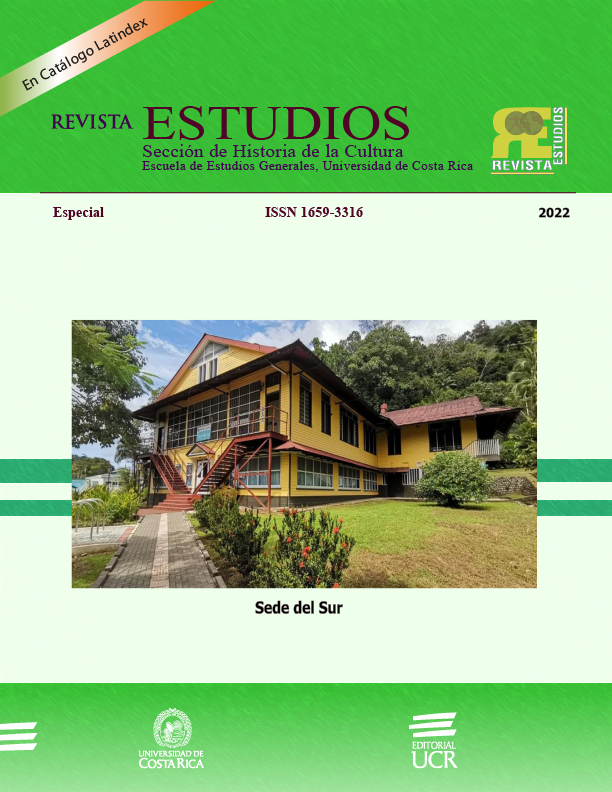Abstract
This article proposes to analyze the collaborative learning didactic techniques and portfolio from a theoretical-methodological reflection about the academic performance of the students of the Integrated Course of Humanities I and II, Communication and Language Section at the South Headquarters of the University of Costa Rica, during the months of March to October 2020. In the Communication and Language Section, the dynamics of reading comprehension by the general studies university population concerning the writing of literary analyzes have been observed based on the communication process between peers and the following thematic axes: a critical reading of cultural environments with a humanistic approach. It is concluded that the Communication and Language students, from the development of class activities in virtual classrooms, expressed themselves based on their own analytical and writing processes at the time of issuing the criteria about the readings studied.
References
Bibliografía
Barthes, R. (2002). Oeuvres completes, vol. 5. Edición revisada, corregida y presentada por Eric Marty. París: Seuil.
Barthes, R. (1996). El placer del texto. México: Siglo XXI.
Batista, I. M., Hernández, A. M. y Reyes, Y. (2021). Consideraciones teórico-
prácticas para la comprensión del texto literario en estudiantes universitarios (Revisión). Redel. Revista Granmense De Desarrollo Local, 5(4), 353-366. https://revistas.udg.co.cu/index.php/redel/article/view/2883
Cinetto, L. (1990). Estrategias de lectura para mejorar la comprensión. Buenos
Aires: Lexus.
Chaljub, J. M. (2015). Trabajo Colaborativo como estrategia de Enseñanza en la
Universidad. Cuaderno de Pedagogía Universitaria, 11(22), 64–71. http://cuaderno.pucmm.edu.do/index.php/cuadernodepedagogia/article/view/213.
Flores, R. (2009). Análisis e interpretación de información cualitativa. Observando
Observadores : Una introducción a las técnicas cualitativas de investigación social (pp. 261-348). Ediciones UC.
http://www.jstor.org/stable/j.ctt17t76p7.11
García-Segura, S., Rey-Sánchez, E., y Gil-Del-Pino, C. (2019). El portafolio como propuesta didáctica innovadora en las aulas de educación primaria. Praxis Educativa, 23(2), 1-14. doi:https://doi.org/10.19137/https://dx.doi.org/10.19137/praxiseducativa-2019-230207
Henríquez, T. (2014). La Importancia de las Técnicas Didácticas en el Proceso de enseñanza-aprendizaje. https://taniawebsoc.wordpress.com/2014/12/12/la-importancia-de-lastecnicas-didacticas-en-el-proceso-de-ensenanza-aprendizaje/
Mendoza, A. (2004). La educación literaria. Bases para la formación de la competencia lecto-literaria. Aljibe.
Monedero, C., y Durán, D. (2002). Entramados: métodos de aprendizaje cooperativo y colaborativo. Édebe.
Pardo, N. (2011). Análisis crítico del discurso: Conceptualización y desarrollo. Cuadernos de Lingüística Hispánica (19) 41-62.
Pérez, D. y Hospital, J. (2014). La lectura crítica en la educación superior: una propuesta para el profesorado universitario desde la experiencia de dos estudiantes de pregrado.
https://dialnet.unirioja.es/descarga/articulo/5251818.pdf
Vera, J., Pirela, J., y Erreyes, S. (2021). Sistematización de la enseñanza virtual: modalidades y características. Revista Científica Mundo Recursivo, 4(1), 149-160
Zayas, F. (2011). La educación literaria y las TIC. Aula de innovación educativa. Graó.


